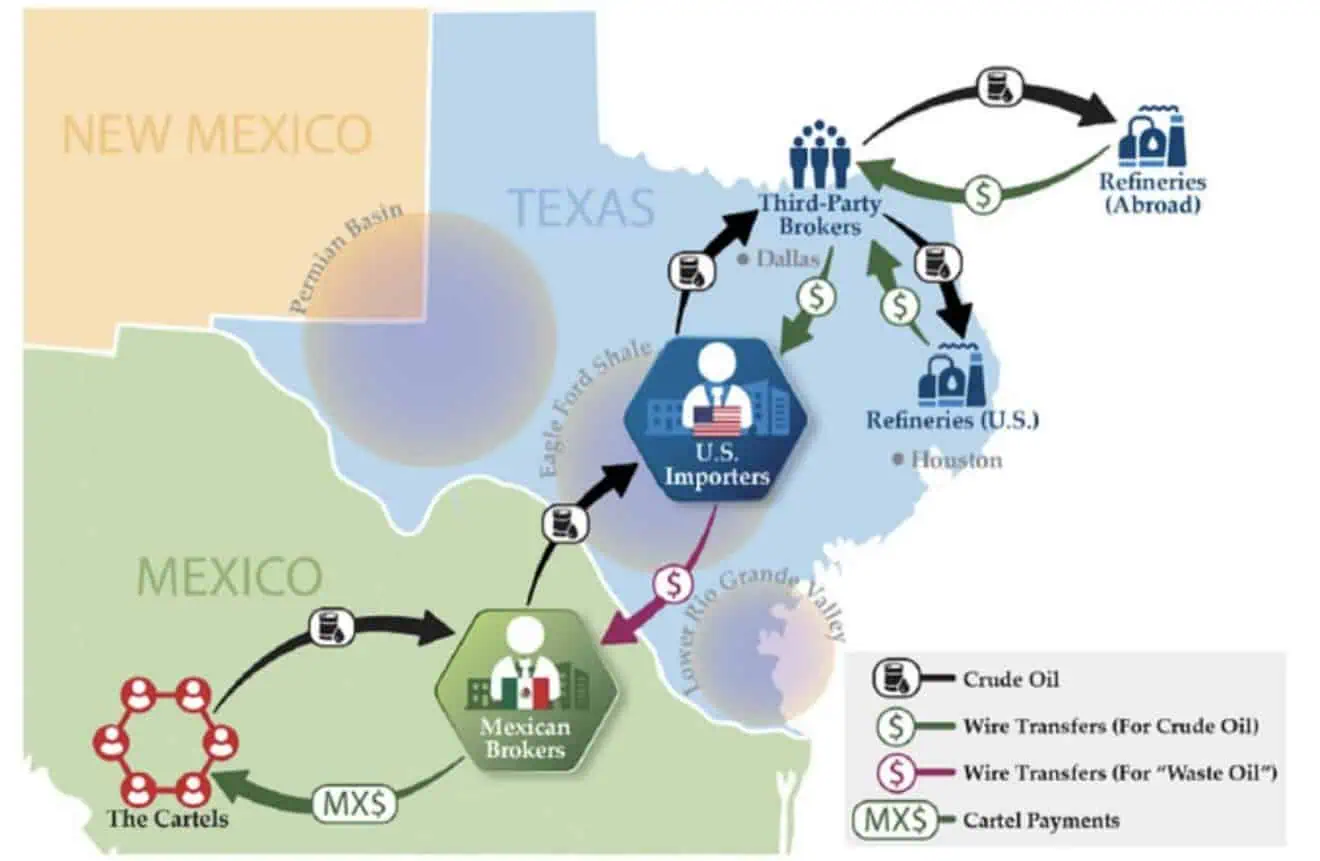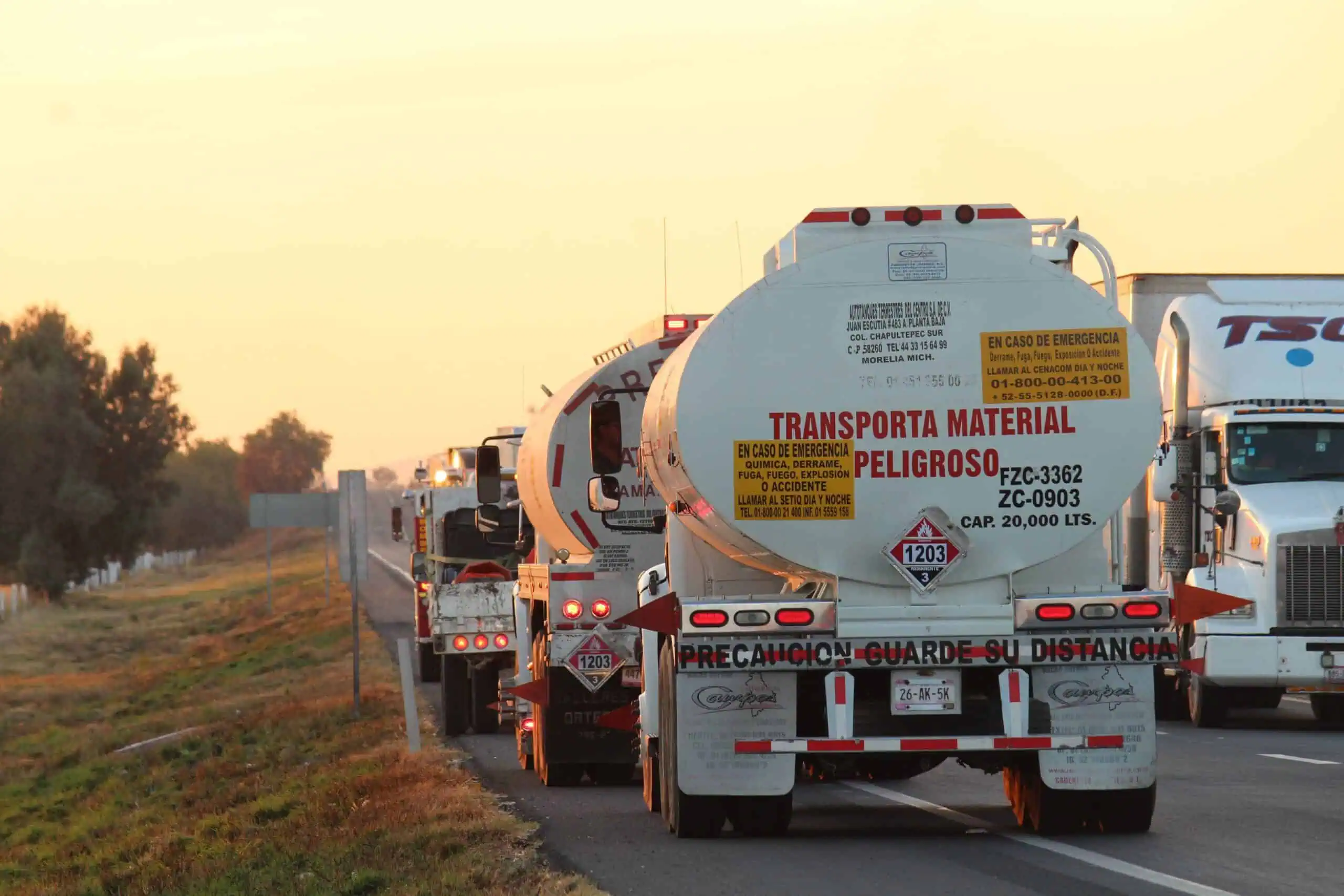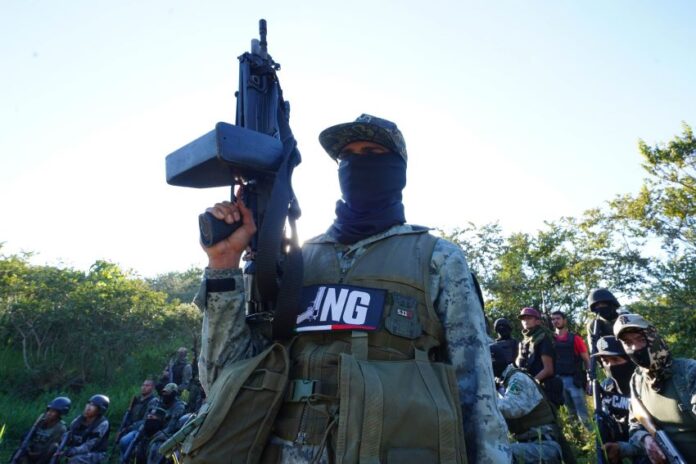The U.S. government announced new economic sanctions and a financial crimes alert targeting the powerful Jalisco New Generation Cartel (CJNG) and its fuel theft network.
The U.S. Treasury Department imposed sanctions on “three Mexican nationals and two Mexican-based entities linked to” the CJNG.

Also Thursday, the U.S. Financial Crimes Enforcement Network (FinCEN) issued an alert urging U.S. financial institutions to be vigilant in detecting, identifying and reporting suspicious activity connected to the smuggling of stolen crude oil from Mexico into the U.S.
A State Department press statement said “a key Mexico-based network involved in fentanyl trafficking, fuel theft, and crude oil smuggling.”
The sanctions freeze all assets the individuals or companies have in the U.S. and prohibit U.S. citizens from doing business with them.
The U.S. Treasury identified the three men as César Morfin, allegedly a top CJNG lieutenant, and his brothers Álvaro Noé Morfin and Remigio Morfin. The U.S. also sanctioned two companies, Servicios Logísticos Ambientales and Grupo Jala Logística, that they said worked directly or indirectly for César Morfin, transporting stolen fuel between the U.S. and Mexico
“This network generates hundreds of millions of dollars annually, benefitting CJNG’s narco-terrorist enterprise through a slew of criminal activities, including fentanyl trafficking, fuel theft and smuggling crude oil from Mexico,” the Treasury statement said.
The fuel-smuggling network has resulted in tens of millions of dollars in lost revenue to the Mexican government, the Treasury said.
The FinCEN alert said the CJNG, the Sinaloa Cartel, the Gulf Cartel and “other Mexico-based transnational criminal organizations” were actively involved in fuel smuggling.
“[F]uel theft in Mexico, including crude oil smuggling, has become the most significant non-drug illicit revenue source for the Cartels and enables them to sustain their global criminal enterprises and drug trafficking operations into the United States,” the alert said.
FinCEN alleged that the cartels use “complicit Mexican brokers in the oil and natural gas industry” to smuggle and sell crude oil stolen from Mexico’s state oil company Pemex to “complicit, small U.S.-based oil and natural gas companies” operating near the U.S. southwest border.
The alert said the cartels obtain crude oil by bribing corrupt Pemex employees and local government officials, but also illegally tap oil pipelines and steal from refineries.

The crude oil is then transported on tanker trucks across the U.S. southwest border, FinCEN said, mislabeled as “waste oil” or other hazardous materials related to the oil and natural gas refining process to avoid scrutiny and evade taxes.
The U.S. Treasury Department previously sanctioned the CJNG in April 2015 and December 2021, and in February, the U.S. State Department designated the CJNG a Foreign Terrorist Organization and Specially Designated Global Terrorists.
In September, the Treasury sanctioned nine Mexican nationals and 26 Mexico-based businesses allegedly involved in the CJNG fuel theft network.
In trade talks with Mexico, the White House has said Mexico must be held accountable for its promises to halt illegal immigration and stop fentanyl and other drugs from flowing into the U.S.
This week, Mexican President Claudia Sheinbaum said her party in Congress is working to address fuel theft and smuggling by strengthening the government’s tools to provide traceability for fuel shipments.
“With regard to any tanker truck carrying fuel … we will know: where it came from; where it’s going; if it’s imported, with what import permit it entered, where it was store, and from there to which service station it is being taken,” Sheinbaum said, according to The Associated Press.
With reports from Infobae, The Associated Press, El Financiero
